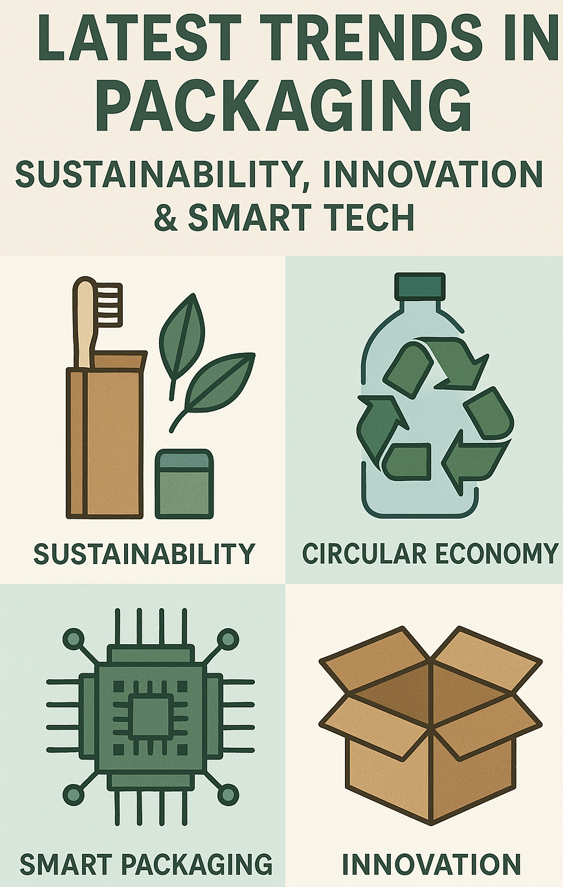
Sebastian Rusu, head of brand planning & consumer communications at Yeo Valley Organic, tells PackagingInsights that the company wanted to “make sure that the packaging of [its] products is coming in as low impact as possible – this is why we’ve started this project.” He continued that the change will remove 145 metric tons of plastic annually – “that’s the equivalent of 188 Friesian cows, 24 African elephants or 17 tractors.”
“Packaging is an important aspect of our overall sustainability strategy and one where we can make a significant difference with even small changes. We are working to ‘close the loop’ on our packaging,” says Rusu.
Plastic reduction when possible
Yeo Valley Organic is a member of The UK Plastics Pact and “has made good progress” on ensuring that all of its plastic packaging is fully recyclable and made from recycled materials, according to Rusu.
“We believe that wherever possible, manufacturers should consider the possibility of switching to reusable options.”
However, he mentions that in some cases, when it comes to food packaging, plastic is the best option. “This being said, we feel plastic packaging still has a role to play, particularly if it is part of a circular economy.”
“Plastic packaging can be durable, light and easily stackable, so it would take much less carbon to transport than glass, for instance, and as long as it is recyclable curbside and made using a high proportion of recycled content, it can be made more sustainable.”
Recyclability of yogurt
A wide range of Yeo Valley Organic 350g and 450g yogurts are sold in Greiner Packaging’s recyclable K3 cardboard-plastic cups. The lightweight plastic cup is made from 100% r-PET, wrapped in cardboard from Forest Stewardship Council (FSC) certified material.
“We cover our big pots in a recycled card to reduce the amount of plastic used, and we recently switched our big pots to 100% recycled rPET material. We are, of course, working on further improvements, rolling them out as soon as they are available,” states Rusu.
Consumers can tear the seam and remove the cardboard sleeve. After rinsing the plastic pot clean, it can be put in the plastics bin, while the sleeve goes into the cardboard and paper recycling. Regarding the reusable lids, after each use, they can be washed by hand or put in the dishwasher before reuse.
“Greiner Packaging UK & Ireland is the first packaging manufacturer in Northern Ireland to gain the Sustainably Sourced Plastics (SSP) Certification and the first Greiner Packaging factory in the world to be awarded FSC Chain of Custody certification,” adds Julie Eller, sales director at Greiner Packaging UK & Ireland.
The company recently invested over £3.7 million (US$4.6 million) in a new PET decontamination and extrusion line to enable the use of more recycled materials in its market-leading packaging ranges.
Informing the consumer
In the build-up to the change, Yeo Valley Organic products featured a message telling consumers that the old clip-lids would be removed but that they could obtain reusable lids via its website by using their Yeokens. Almost every Yeo Valley pack has a unique code that can be redeemed online for Yeokens.
“One of the key challenges was that we wanted to make this transition as easy as possible for our consumers. We did this by communicating well in advance on the packs we will be doing the change, encouraging our consumers to keep the single-use lids if they wanted or head to our website to order reusable lids,” details Rusu.
The covers will be available via the company’s online loyalty scheme by exchanging ‘Yeokens.’ These can also be spent on goodies, discounts or used to play games and win prizes. Consumers can also use the tokens to make donations to Yeo Valley Organic’s chosen charities.
Similarly, last month Sainsbury’s announced it would be removing single-use plastic lids across its own-brand dip pot ranges in 2023. Starting in March, Sainsbury’s will no longer sell its guacamole, tzatziki, sour cream and chive dip with single-use plastic lids.







